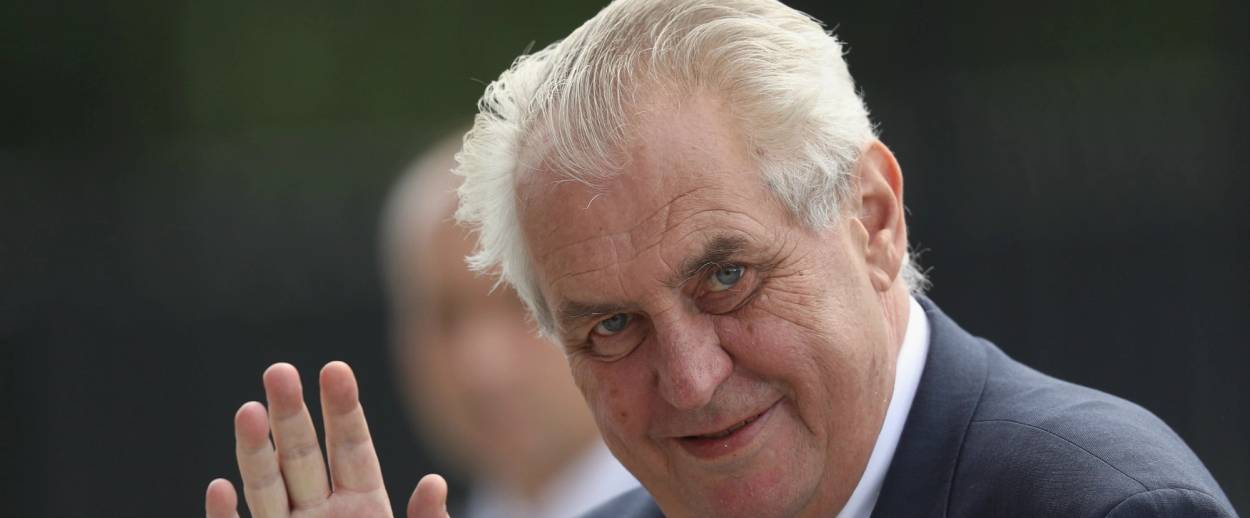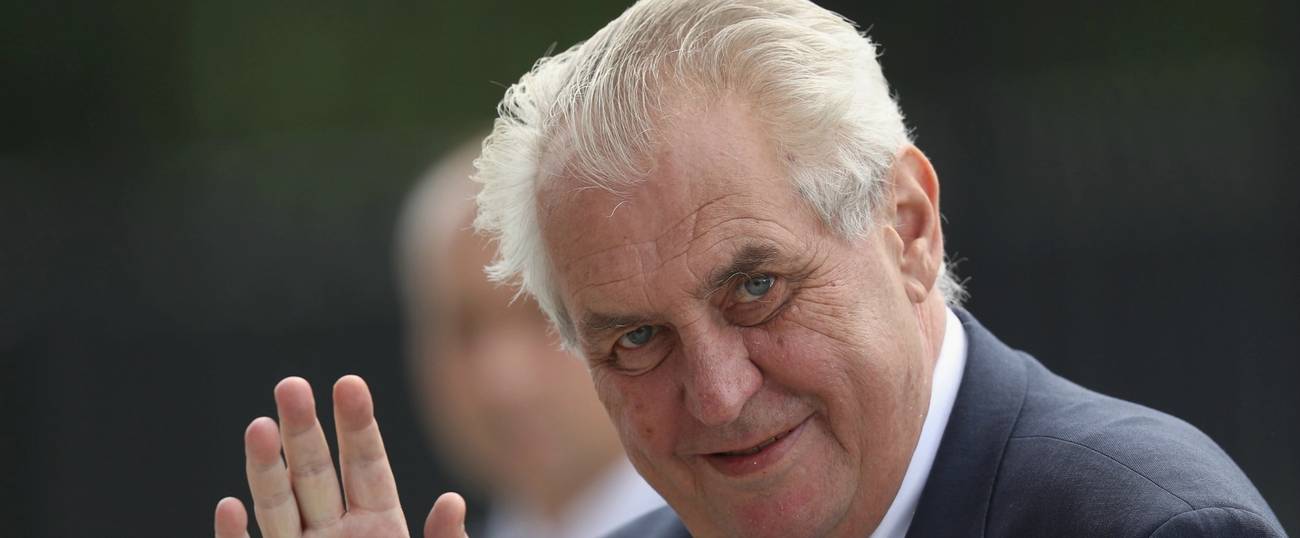Miloš Zeman and the Czech Tradition of Supporting Israel When It Matters
The presidents in Prague have a history of standing with the Jewish State, and the current recognition of Trump’s Jerusalem announcement is no exception




The only European leader who starkly defied the protesting chorus to applaud Donald Trump’s recognition of Israel’s capital was the President of the Czech Republic, Miloš Zeman.
By so doing, Zeman was renewing a peculiar tradition of his office that started with the founding president Thomas Masaryk, a philosophy professor who first became a public figure in Austro-Hungarian days by powerfully defending Leopold Hilsner, a Jewish tramp tried and convicted of the ritual murder of a girl in 1899. To the fury of the Catholic prelates who had incited mobs against Hilsner, the imperial authorities intervened from Vienna to stop Hilsner’s execution. A long campaign ensued till Hilsner’s liberation, and, in the process, Masaryk won over many Czechs to his view that anti-semitism was a pernicious pack of lies at a time when it was almost Catholic doctrine ( Viennas’s mayor Karl Lueger kept been re-elected till his death in 1910 on an explicitly anti-semitic platform, strongly backed by the Church).
Upon independence, Thomas Masaryk became President of Czechoslovakia, and it was in that capacity that he warmly welcomed the first Zionist Congress convened after the Balfour Declaration, at Karlovy Vary in 1921—two more would follow in 1923 and 1933, under Chaim Weizmann’s leadership.
With that, Masaryk established a more than life-long friendship with Chaim Weizmann and with Zionism; in 1948, when Masaryk was dead and Weizmann was president of the newly declared State of Israel, his son Jan Masaryk personally signed as Foreign Minister the order to sell weapons to Israel.
At the time, the British, with the fullest US support, had no higher priority than to stop any weapons at all from reaching the embattled Jews, to ensure their swift defeat by the invading Arab armies. It was not because of any personal hostility that US Secretary of State Marshall refused to grant an audience to Israel’s new envoy Abba Eban–he was simply too busy to waste his time over an ephemeral statelet that would soon disappear. It was a prediction that he himself did much to realize, because US Embassies world-wide, then invested with immense prestige, joined the British in successfully stopping any weapon sales to the Jews. Nor could an effective army be equipped with the odds and ends brought in by smugglers—variegated small arms of different calibers, many worn out.
It was then that the most under-estimated figure in Israel’s history, Ehud Avriel a.k.a. Georg Überall, diplomat extraordinaire, arrived in Prague with funds to buy arms. Avriel was delighted to discover that, in Masaryk’s country, the Jews had friends in every political party, Communists included (Stalin’s lack of enthusiasm for Jews was outweighed by his anti-British priorities), and that there were vast stocks of brand-new weapons of every kind including fighter-bombers. Soon chartered transports flown by intrepid pilots were delivering the German Mauser rifles that every Israeli still knows as Czehis, along with machine-guns, mortars and everything else that made victory possible. In May 1948, Israel’s future President Ezer Weizmann learned to fly the Avia S-199 fighter-bomber (a locally produced Messerschmitt) at the České Budějovice airfied south of Prague–whose unfettered use was another priceless favor–before flying much further south to attack the invading Egyptian army.
All through this, the Czechs–Israel’s one and only suppliers–were bombarded with American and British complaints, outright threats, and offers of inducements, but they stood firm, just as Miloš Zeman stood firm when Federica Mogherini, Arafat’s ex groupie and Rouhani enthusiast (not one word from her about the recent Iranian protests) and now Europe’s farcical “High Representative of the Union for Foreign Affairs and Security Policy“, chose to lead the outcry over Jerusalem.
Zeman is up for re-election against Jiří Drahoš, a nice man and a perfectly respectable scientist, but it is clearly Zeman who upholds the Masaryk tradition when it comes to Israel. He received 38 percent of the vote in the first round as against 26 percent for Drahoš, but faces a maximum effort from the Mogherini set in the concluding vote next week (for more on the election see here). He is worthy of support.
Edward N. Luttwak is a contractual strategic consultant for the U.S. government and an author.